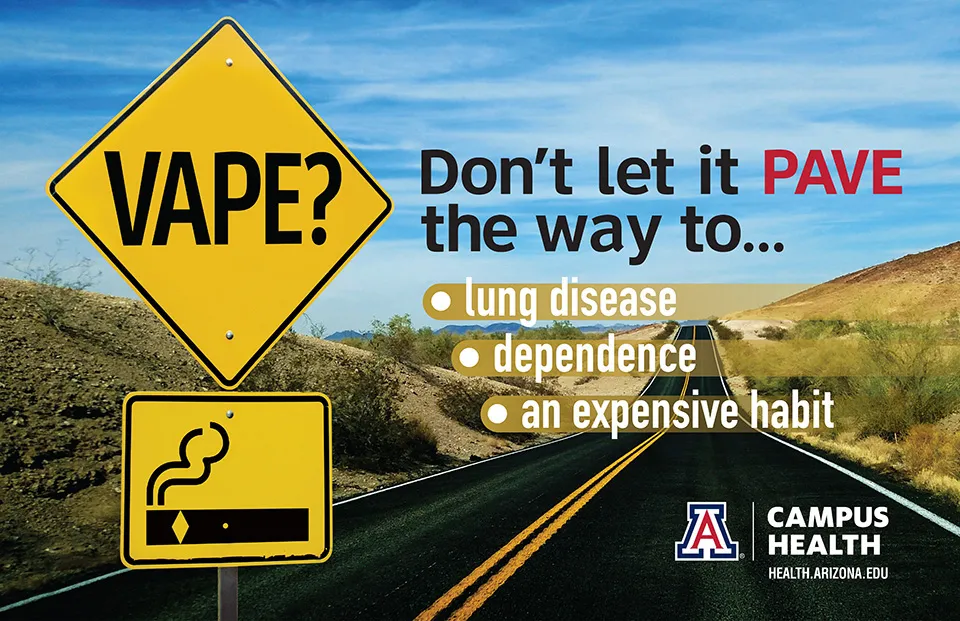
- Vaping is just as addictive and harmful as traditional cigarettes.
- Not all health effects of vaping have been identified/researched.
- Nicotine is a dangerous and highly addictive chemical. It can cause an increase in blood pressure, heart rate, and a narrowing of your arteries (vessels that carry blood),
- Nicotine and tobacco have both short-term effects (shortness of breath, fatigue, bad breath, etc.) and long-term effects (heart attacks, strokes, lung disease, and cancer) on your health.
- There are many alternatives to reduce stresses and anxiety.
- Want to quit? There are many resources to support you. (see below)
Making informed and healthy decisions about nicotine and tobacco use can sometimes be influenced by the stressors and adversity of daily life. Using nicotine or tobacco may feel harmless, but the long-term effects can decrease the quality and length of your life.
Resources & Services at Campus Health
Reasons UA Students Chose To Quit Or Never Start:
- "It costs so much."
- "My friends didn't like it."
- "I felt like I was missing out on stuff."
- "I got addicted."
- "I couldn't get to sleep at night."
- "I realized big tobacco was using me to make money."
- "I heard someone just died from their lungs collapsing."
- "It left a film on everything."
- "People could smell it on me."
- "I realized it was just as bad for me as regular cigarettes."

You can access the e-cigarette quit program by texting DITCHVAPE to 88709.
Individual counseling sessions can be scheduled by calling (520) 621-3334.
In The News
Arizona Poison Center Warns of Severe Lung Injury Risk with Vaping
Outbreak of Lung Injury Associated with the Use of E-Cigarette, or Vaping Products
-
CDC recommends that people DO NOT:
-
Use THC-containing e-cigarette, or vaping, products, particularly from informal sources like friends, family, or in-person or online sellers.
-
Add Vitamin E acetate to e-cigarette or vape products
-
Media

We Got The Facts From You
76% of UA students have not used e-cigarettes/JUUL/vape tobacco since August 2020.
88% of UA students have not used tobacco since August 2020.

